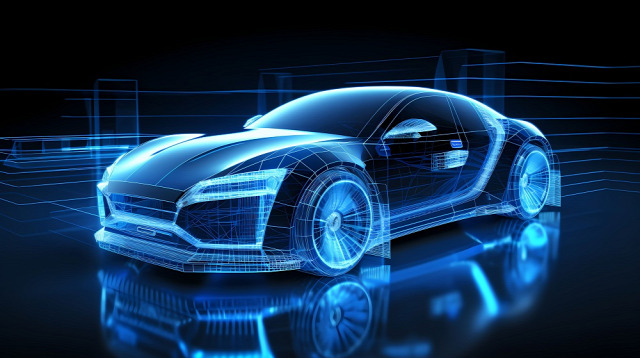
The automotive industry is undergoing a profound transformation, driven by technological advancements, changing consumer preferences, and environmental concerns. This evolution extends beyond traditional vehicles to encompass a broader concept of mobility, encompassing everything from electric cars and autonomous vehicles to ride-sharing platforms and connected services.
BIS Research Provides Automotive Market Research Reports covering in-depth industry analysis, trends, key developments, business outlook and comprehensive market growth data. The design, development, production, and retailing of motor vehicles, such as cars, trucks, motorbikes, and other passenger vehicles, are all included in the broad category of the automotive industry. Over the years, the automotive sector has experienced many changes and difficulties. The move toward electric and driverless cars, the rise of shared mobility services, and the growing need for digital features and connections are a few of the noteworthy developments. Concerns about sustainability, developing technology, and changing customer preferences are some of the elements driving these developments.
BIS Research explores the overall mobility industry by segregating it into five main segments:
- Connected Vehicle Market
- Autonomous Vehicle Market
- Shared/Urban Mobility Market
- Electric Vehicle Market
- Auto Parts/ Electronics Market
Autonomous Driving: The development of autonomous driving technology represents another transformative trend in the automotive (mobility) market. While fully autonomous vehicles are not yet commonplace on the roads, significant progress has been made in recent years, with numerous companies testing self-driving cars in various environments. Autonomous vehicles have the potential to revolutionize transportation, offering increased safety, efficiency, and accessibility. However, widespread adoption hinges on addressing technical challenges, regulatory hurdles, and societal acceptance.
Shared Mobility: The rise of shared mobility services, such as ride-hailing and car-sharing platforms, is reshaping urban transportation patterns. These services offer consumers convenient and cost-effective alternatives to traditional car ownership, reducing congestion and parking demand in urban areas. Ride-hailing companies like Uber and Lyft have already transformed the way people move around cities, while car-sharing services like Zipcar provide flexible access to vehicles without the burden of ownership. As shared mobility continues to evolve, partnerships between automakers, tech companies, and transportation providers will be crucial in shaping the future of urban mobility.
Connected Services: The proliferation of connected technologies is enabling new opportunities for innovation in the automotive sector. Modern vehicles are equipped with an array of sensors, cameras, and connectivity features that enable real-time data collection and communication. These connected capabilities facilitate everything from vehicle diagnostics and predictive maintenance to advanced driver assistance systems and infotainment services. Additionally, the emergence of vehicle-to-everything (V2X) communication enables cars to communicate with each other and with the surrounding infrastructure, improving safety, efficiency, and traffic management.
Electric Revolution: One of the most significant shifts in the automotive industry is the transition towards electric vehicles (EVs). With concerns over climate change and air pollution mounting, governments around the world are implementing stricter emissions regulations, incentivizing the adoption of electric cars, and investing in charging infrastructure. Major automakers are responding by ramping up their electric vehicle offerings, with many announcing plans to phase out internal combustion engines entirely in the coming years. This shift is not only reshaping the manufacturing landscape but also creating opportunities for innovation in battery technology, charging infrastructure, and renewable energy integration.
Challenges and Opportunities:
While the automotive (mobility) market presents immense opportunities for growth and innovation, it also poses significant challenges. Automakers must navigate a rapidly evolving landscape characterized by technological disruption, regulatory uncertainty, and shifting consumer preferences. Additionally, concerns around data privacy, cybersecurity, and ethical considerations in autonomous driving present complex challenges that require careful consideration. However, by embracing innovation, fostering collaboration, and investing in sustainable solutions, the automotive industry can navigate these challenges and unlock new opportunities for growth and progress.
Conclusion:
BIS Research is keeping a close watch on the latest automotive market developments. The automotive (mobility) market is undergoing a profound transformation driven by technological innovation, changing consumer behaviors, and environmental imperatives. Electric vehicles Market, autonomous driving, shared mobility, and connected services are reshaping the way we think about transportation, offering new opportunities for efficiency, convenience, and sustainability. As the industry continues to evolve, collaboration between stakeholders will be essential in shaping a future of mobility that is safer, cleaner, and more inclusive. By embracing innovation and addressing challenges proactively, the automotive industry can navigate this period of disruption and emerge stronger and more resilient than ever before.

